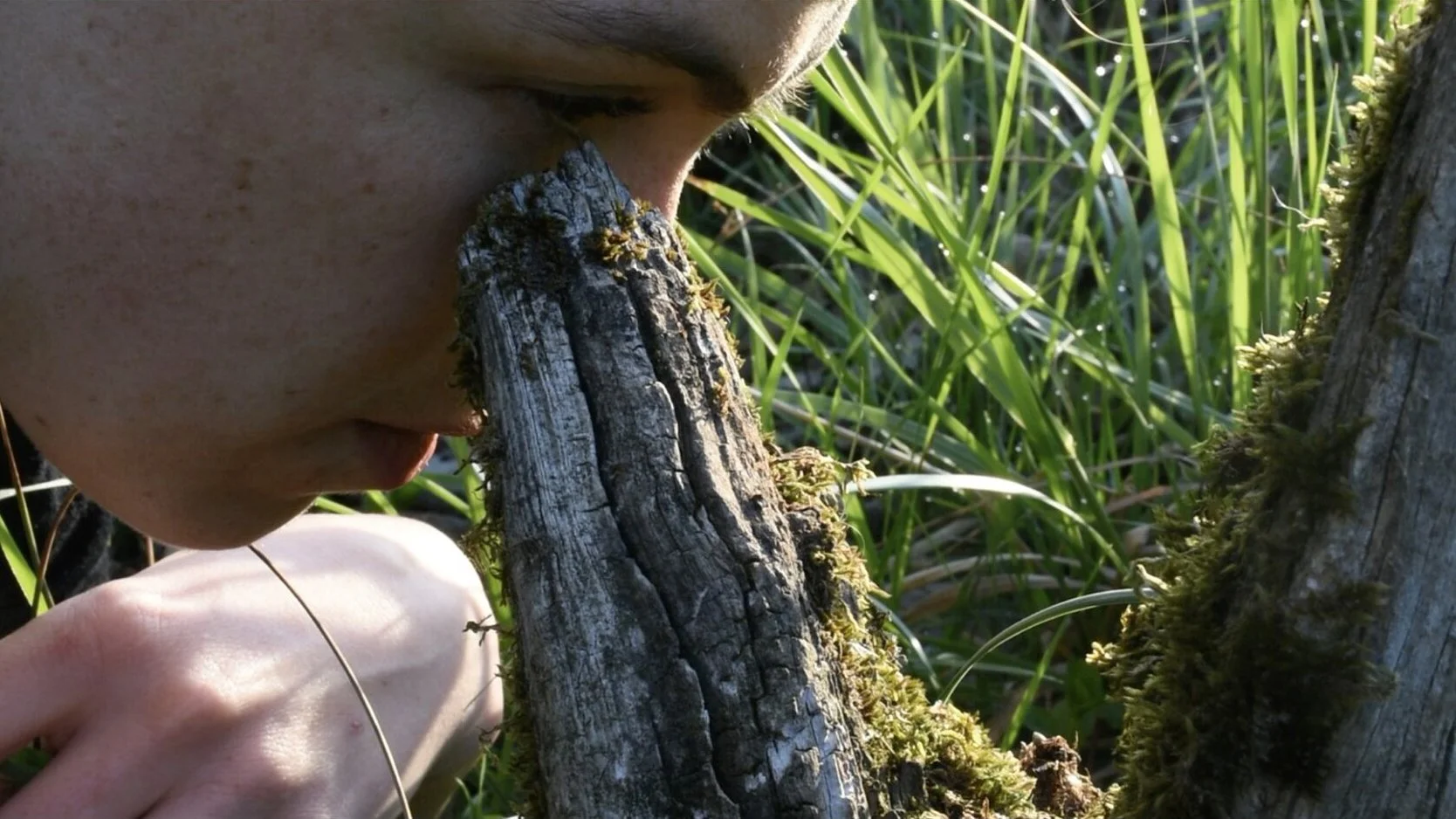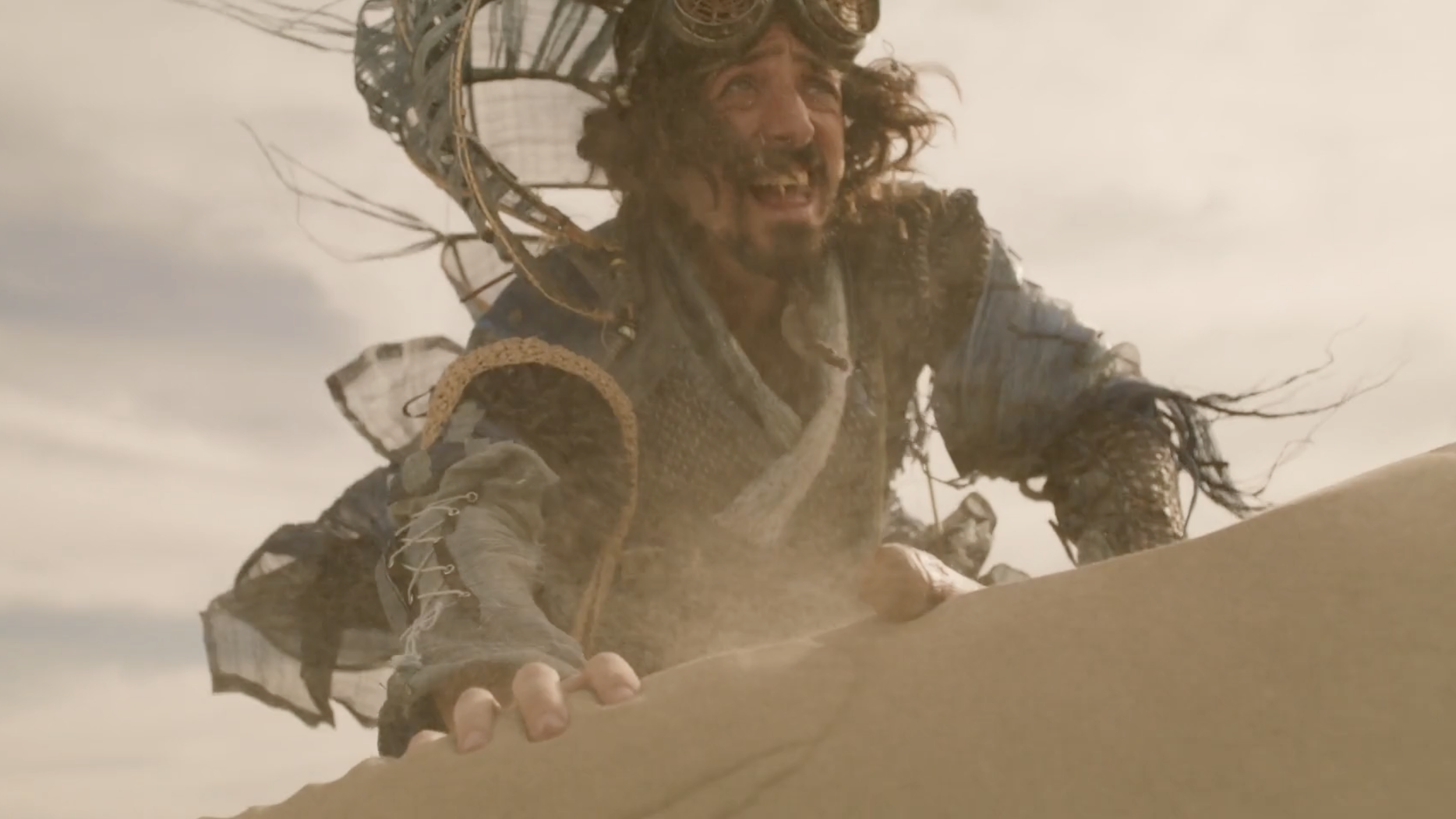Mammoth superimposes two climate engineering (geoengineering) projects that are currently funded and underway, each courting the notion of Return. One is Pleistocene Park and Colossal Inc.’s proposal to genetically engineer woolly mammoths back from extinction, reintroducing them to the melting Arctic tundra to “re-wild” it as before Homo sapiens arrived. This dramatic intervention in nature, its proponents hope, would lock thawing methane deposits back into the permafrost, averting a disastrous climate tipping point.
The other is a Climeworks’ carbon dioxide removal plant under construction in Iceland, capable of direct air capture of 4,000 tonnes of CO₂ annually, a prototype for a project that the company has codenamed “Mammoth.”
These two mammoth-scale geoengineering endeavours are set in counterpoint. The film unfolds through documentary footage of the carbon capture machines rising in Iceland, while a voiceover – delivered from some imagined future vantage point by an AI – recounts a speculative history of the de-extinction project, ending with humanity’s downfall from the methane emissions of the very mammoths designed to save us.
The work carries a wry, almost comedic tone, probing the hubris behind such techno-fixes. While not dismissing the science, Mammoth makes its satire plain: in seeking ever-grander solutions to the climate crisis, we risk compounding its dangers while enabling polluters to continue business as usual, offsetting their way out of urgent emissions reductions.









